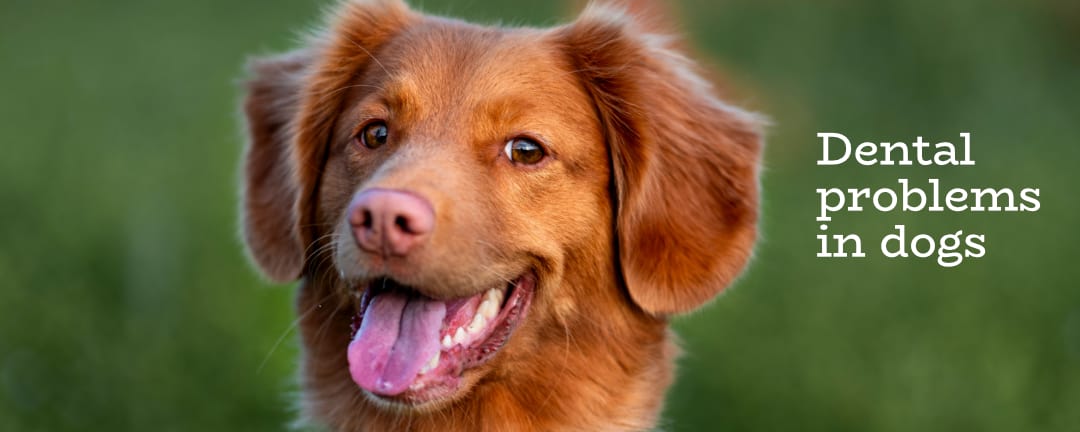Dental problems in dogs - conditions and treatment

Dental problems in dogs are a common issue that can lead to discomfort, pain, and even serious health complications. Just like humans, dogs need regular dental care to maintain healthy teeth and gums. In this blog post, we will explore the most common dental problems in dogs, their causes, symptoms, and treatment options.
Common Dental Problems in Dogs
-
Periodontal Disease: This is a bacterial infection that affects the gums and supporting structures of the teeth. Periodontal disease can cause tooth loss, pain, and even systemic health problems if left untreated.
-
Tooth Decay: Tooth decay is caused by the accumulation of bacteria on the teeth, which can lead to cavities and tooth loss.
-
Broken Teeth: Dogs can break their teeth by chewing on hard objects or from trauma.
-
Malocclusion: This is a misalignment of the teeth, which can cause discomfort and pain.
-
Gingivitis: Gingivitis is inflammation of the gums, which can cause redness, swelling, and bleeding.
Symptoms of Dental Problems in Dogs
Some common symptoms of dental problems in dogs include:
-
Bad breath
-
Swollen, red, or bleeding gums
-
Loose or missing teeth
-
Difficulty eating or chewing
-
Drooling excessively
-
Pain or discomfort when opening the mouth
-
Weight loss
What is the cause of gum disease in dogs?
Plaque is a sticky coating that forms across the oral surfaces of your dog immediately after eating as a result of bacteria, food, saliva, and other food particles (like tooth enamel). Plaque bacteria teach your dog's immune system to identify them as alien, which causes it to quickly gather white blood cells to launch an attack. White blood cells are then told by plaque bacteria to release enzymes to degrade gum tissue. Untreated gum disease causes this conflict, which results in inflamed gums, damaged tissue, tooth loss, bone loss, and even jaw fracture.
Diagnosis of Dental Problems in Dogs
If you suspect that your dog has a dental problem, you should take them to the vet for a thorough dental exam. Your vet will likely perform a visual inspection of your dog's teeth and gums, as well as take X-rays to check for any underlying issues.
The issues with tartar and plaque
Plaque promotes gum inflammation (gingivitis), which can at first be very subtly noticeable and increases the likelihood of bleeding gums. A dog's teeth develop calculus (tartar), a hard, brownish-yellow substance that forms when plaque is not removed over time. Tartar provides the ideal surface for further plaque to adhere to, accelerating the decay process. Although gingivitis is treatable, if neglected, it can develop into periodontitis.
Treatment of Dental Problems in Dogs
The treatment for dental problems in dogs depends on the specific issue and the severity of the condition. Some common treatment options include:
-
Professional Dental Cleaning: This involves removing tartar and plaque buildup from the teeth using specialized tools and equipment.
-
Tooth Extraction: If a tooth is severely damaged or infected, it may need to be extracted to prevent further complications.
-
Antibiotics: If your dog has an infection, antibiotics may be prescribed to treat the infection and prevent it from spreading.
-
Pain Medication: Pain medication may be prescribed to help manage discomfort or pain associated with dental problems.
Prevention of Dental Problems in Dogs
Preventing dental problems in dogs is essential for their overall health and well-being. Some tips for preventing dental problems in dogs include:
-
Regular Dental Care: This includes brushing your dog's teeth regularly, providing dental chews or toys, and scheduling regular dental cleanings with your vet.
-
Healthy Diet: Feeding your dog a healthy diet that is low in sugar and high in protein can help prevent dental problems.
-
Monitoring via regular dental checkups with your vet which can help to detect any potential problems early on.
In conclusion
Dental problems in dogs are a serious issue that can lead to pain and discomfort for your dog. As part of a healthy balanced lifestyle Nutrix offers a range of high quality hypoallergenic and grain-free recipes which contain no added sugars or other artificial additives.
What can Nutrix offer?
